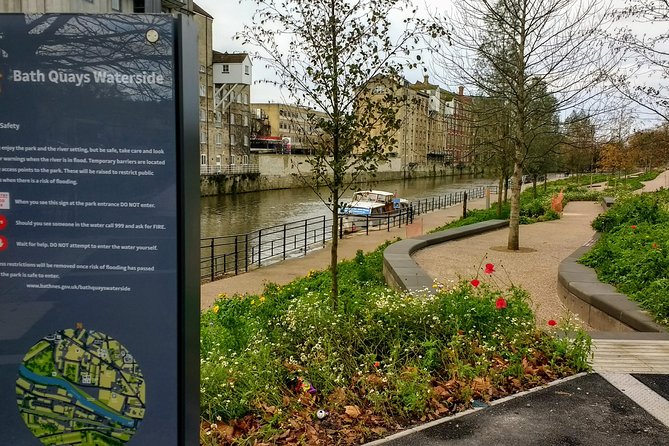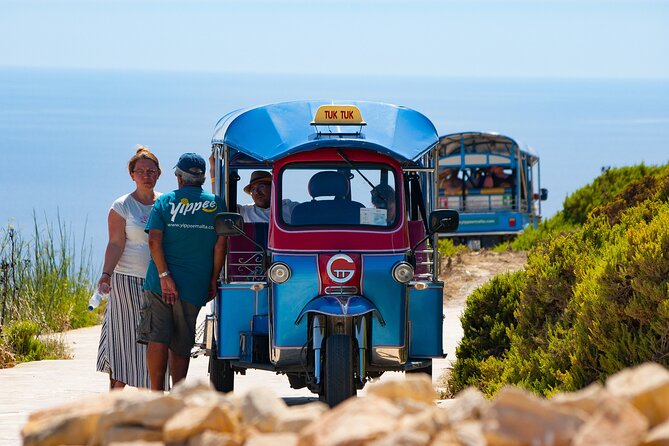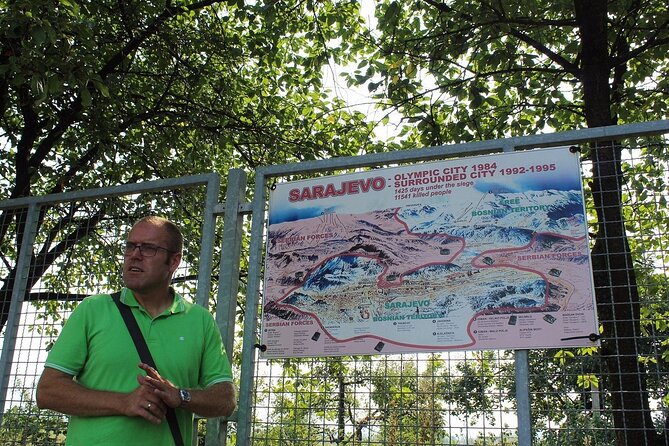Sumo, Japan’s iconic national sport, offers a captivating experience for visitors to Tokyo. Enjoy the centuries-old tradition by attending a tournament at the renowned Ryogoku Kokugikan stadium. With reserved seating and an expert guide providing insights, you’ll witness the raw power and ritual artistry of these grand masters of the sport. Enhance your experience by indulging in a chanko hot pot dinner, a staple of the sumo lifestyle. While advance planning is required due to high demand, this unique opportunity promises to transport you into the heart of Japan’s rich cultural heritage.
Key Points
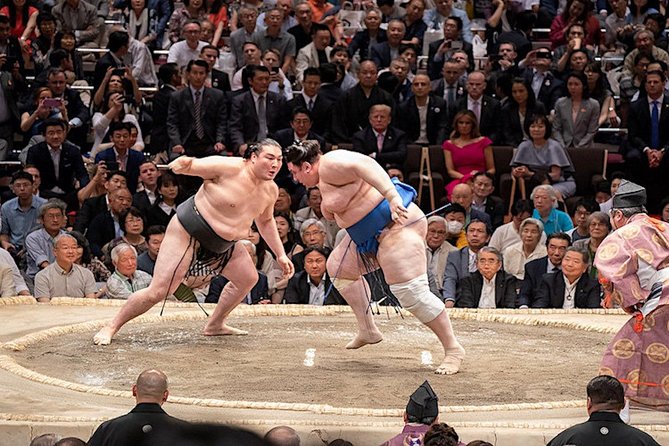
- Attend a sumo tournament at the historic Ryogoku Kokugikan stadium in Tokyo with reserved seating in either B-class or C-class sections.
- Enjoy the guidance of an English-speaking sumo expert and receive a sumo information pamphlet to enhance your understanding of the sport.
- Immerse in the authentic sumo experience by opting for a traditional chanko hot pot dinner, with accommodations made for dietary preferences.
- Explore the strict training regime and disciplined lifestyle of sumo wrestlers, learning about the deep-rooted traditions and cultural significance of the sport.
- Plan your visit well in advance, as sumo tournaments are in high demand, especially during peak travel seasons, and securing the best seats requires early booking.
It's also worth checking out some other tours and experiences nearby.
Overview of Sumo
Sumo is a centuries-old Japanese sport steeped in tradition, characterized by its strict rules, ritualized techniques, and deep cultural significance.
At the heart of sumo lies a reverence for honor, discipline, and respect. Wrestlers, known as rikishi, engage in intense bouts on a circular ring, using their immense size and strength to push, pull, and topple their opponents.
Rituals are essential, from the salt-throwing ceremony to the specific ways wrestlers enter and exit the ring. Sumo’s history can be traced back to ancient Shinto religious practices, and it remains an integral part of Japan’s cultural identity, drawing crowds of fans to the six annual tournaments held across the country.
Inclusions and Experiences
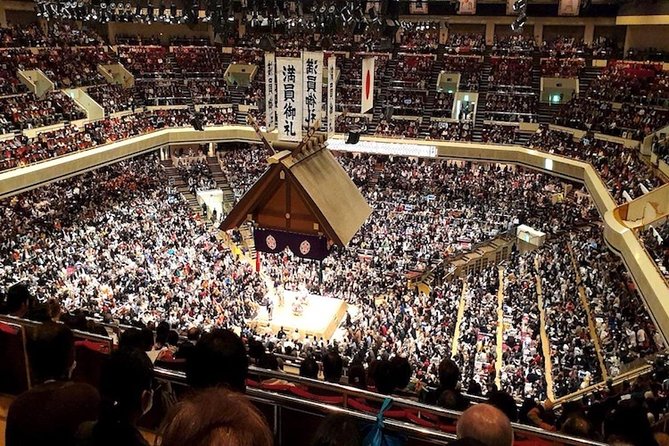
This experience includes reserved seating in either the B-class or C-class sections of the Ryogoku Kokugikan stadium, where the sumo tournaments take place.
Guests will be accompanied by an English-speaking sumo expert guide, who’ll provide information about the sport’s traditions and cultural significance throughout the event. Attendees will receive a sumo information pamphlet to further their understanding.
For those interested, an optional dinner at a local chanko hot pot restaurant can be arranged, allowing participants to enjoy the authentic sumo lifestyle. However, the traditional broth may not be suitable for vegetarians.
Dietary Preferences
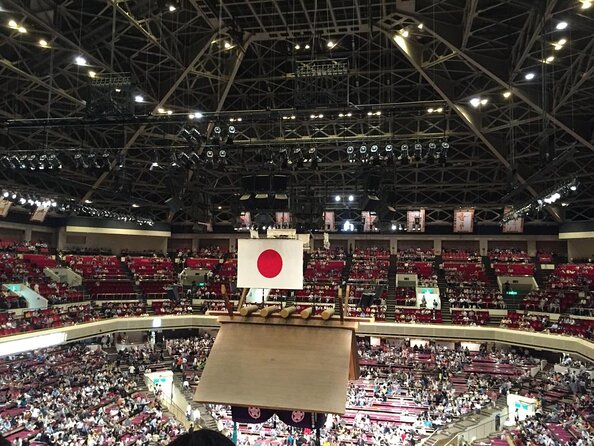
For guests with dietary preferences, the sumo experience offers some flexibility. Sukiyaki or vegetarian options are available upon request, though the traditional chanko nabe broth is typically made with pork or chicken, which may not be suitable for vegetarians.
To accommodate special diets, the experience organizers recommend making requests at least one week in advance. Some key dietary considerations include:
- Sukiyaki option available for those who prefer a beef-based hot pot.
- Vegetarian menu option can be arranged for meat-free diners.
- Traditional chanko nabe broth may not work for strict vegetarians or vegans.
- Guests should communicate any dietary needs when booking to ensure the best experience.
Accessibility and Restrictions
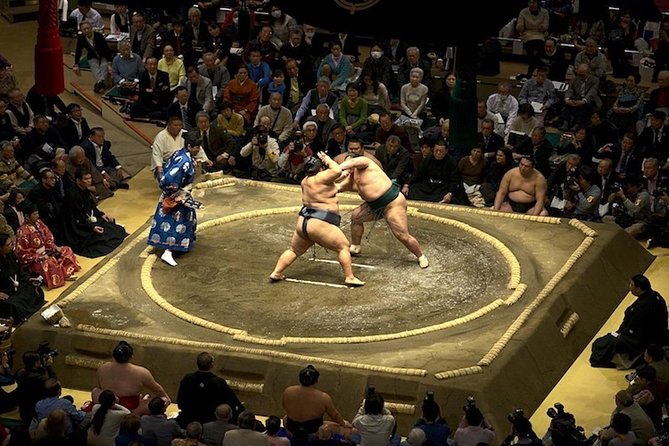
Guests are able to access the sumo tournament experience, as the seating is wheelchair accessible, though they must be prepared to climb stairs to reach the second-floor seats.
Outside food and drinks are strictly prohibited within the arena. This is to maintain the traditional atmosphere and ensure a smooth event for all attendees.
It’s important to note that a minimum number of travelers is required for the experience to proceed; otherwise, it may be canceled. Guests should keep this in mind when booking, as the sumo tournaments are in high demand and fill up quickly, especially during peak travel seasons.
Timing and Locations
Sumo tournaments take place six times a year in Japan, each lasting 15 days, with events held in Tokyo, Osaka, Nagoya, and Fukuoka.
Booking well in advance is recommended, as these tournaments are in high demand and fill up quickly, especially during peak travel seasons.
The key tournament locations and timing are:
- Tokyo: January, May, and September
- Osaka: March
- Nagoya: July
- Fukuoka: November
To secure the best seats, it’s advisable to book your sumo experience at least 3 months in advance, or a minimum of 1 month before your travel dates. This will ensure you don’t miss out on this iconic Japanese tradition.
Booking and Reservations
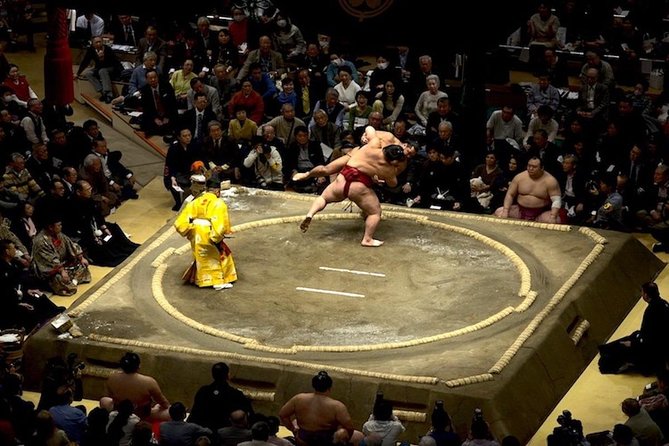
Booking a sumo tournament experience typically requires advance planning, as these popular events often sell out quickly, especially during peak travel seasons. Travelers should aim to reserve their seats at least 3 months in advance, or a minimum of 1 month before their desired travel dates, to secure the best available options.
When booking, guests can choose between B-class or C-class reserved seating within the Ryogoku Kokugikan stadium. It’s important to note that a minimum number of travelers may be required, and the experience could be canceled if this threshold isn’t met.
For those interested in adding a dinner at a local chanko hot pot restaurant, this option should be requested at least one week in advance.
What to Expect
Upon arrival at the Ryogoku Kokugikan stadium, travelers are greeted by the grandeur of the historic sumo arena, where they’ll witness the ancient sport in action.
Guided by a knowledgeable sumo expert, they’ll gain insights into the deep-rooted traditions and cultural significance of this revered Japanese pastime.
The experience includes:
- Reserved B-class or C-class seating, offering excellent views of the intense matches.
- An informative sumo pamphlet, providing a deeper understanding of the sport’s rituals and techniques.
- The option to enjoy a delectable chanko hot pot dinner, a staple meal for sumo wrestlers.
- The opportunity to learn about the strict training regime and disciplined lifestyle of these mighty athletes.
Additional Information
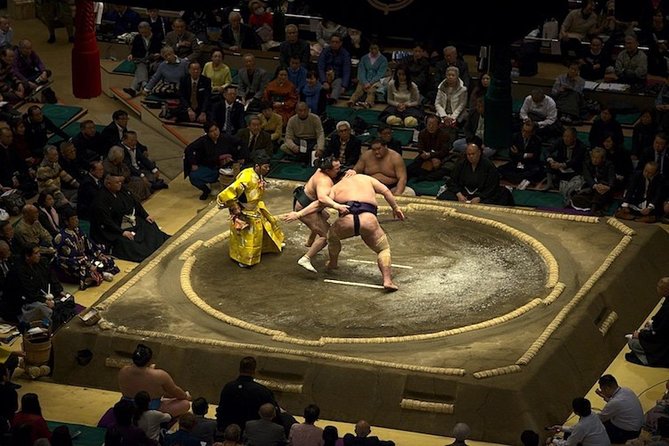
Travelers can arrange for a private pickup from their hotel or nearby location, ensuring a seamless start to their sumo tournament experience. This optional add-on service allows guests to arrive at the venue stress-free and on time.
Plus, tour organizers recommend arriving at least 30 minutes before the scheduled start time to account for security checks and finding one’s designated seating area.
Once inside the arena, guests can enjoy the rich traditions of sumo by reviewing the provided sumo information pamphlet. This guide offers insights into the sport’s history, rules, and cultural significance, enhancing the overall experience.
Visitors should also note that no outside food or drinks are permitted within the Ryogoku Kokugikan stadium.
Here's a few more nearby tours and experiences we think you'll like.
Frequently Asked Questions
Can I Take Photos During the Sumo Tournament?
Photography is generally allowed during sumo tournaments, but guests should be respectful and avoid disturbing the matches. Flashes and video recording may be restricted in certain areas of the arena. Checking with staff for guidelines is recommended before taking photos.
Are Children Allowed to Attend the Sumo Experience?
Children are generally allowed to attend the sumo tournament experience. However, they’ll need a reserved seat and may struggle to fully appreciate the rituals and traditions if they’re quite young. It’s recommended for children aged 10 and above.
Is the Sumo Experience Suitable for Non-Japanese Speakers?
The sumo experience is suitable for non-Japanese speakers as it’s led by an English-speaking expert who provides information about the sport’s traditions and culture. Guests can enjoy the tournament with provided pamphlets and commentary, even without knowing the language.
Can I Purchase Souvenirs at the Sumo Tournament?
Yes, you can purchase souvenirs at the sumo tournament. There are numerous souvenir shops throughout the Ryogoku Kokugikan stadium selling traditional Japanese goods, sumo-themed merchandise, and snacks. Bring extra cash to take home a unique memento from your sumo experience.
Are There Any Restrictions on Attire for the Sumo Event?
There are no strict dress code requirements for the sumo event, but attendees should wear comfortable clothing. Shorts, t-shirts, and casual attire are acceptable. Formal wear isn’t necessary, though you’ll want to avoid excessively revealing or disruptive outfits.
Not for you? Here's more of our most recent tour reviews happening neaby
- Tokyo Private Day Tour by Car With English Speaking Driver Guide
- Private Guided Sightseeing Full Day Tour In Mt. Fuji And Hakone
- Shinjuku Food and Drink Walking Tour
- Let’s Do Shodo (Japanese Calligraphy)!
- Sushi Cooking Class
- Private Nippori Fabric Town Walking Tour
- Let’s Explore Kichijoji, Hidden Gem of Tokyo!
- Discover Japan Tour: 15-day Small Group
- Tokyo Custom Full Day Tour
- Private Day Tour in Tokyo With a Native English Speaker
- Real Drift Car Riding Experience Private JDM Daikoku Tsukuba Fuji
- 90-min Elite Ninja 5 Basic Techs in the Ninja Clan Dojo in Tokyo
- Tokyo Manga Lesson “Let’s Become a Manga Artist!”
- Ryogoku Sumo Town – History, Culture, and Chanko-nabe Lunch
- Handmade Goshuin Book Experience Eco Friendly Upcycling in Tokyo
Recap
Attending a sumo tournament in Tokyo’s Ryogoku Kokugikan is a unique opportunity to take in Japan’s centuries-old national sport.
With reserved seating and an expert guide, visitors can witness the raw power and disciplined artistry of sumo wrestling while also experiencing the authentic sumo lifestyle through a chanko hot pot dinner.
Advance planning is essential due to high demand for this cultural experience.

